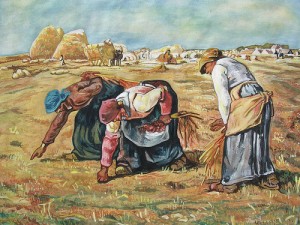 In order to mitigate the country’s devastating water shortages, Jordan seeks help from Thailand to create artificial rain.
In order to mitigate the country’s devastating water shortages, Jordan seeks help from Thailand to create artificial rain.
Drought and floods are on different sides of the same coin, both equally devastating. Pakistan’s cries for help are being heard throughout the world while the rest of us, particularly in the Middle Eastern desert regions, are simply waiting for our turn. Yemen is close to being waterless. The Jordan River is close to dying altogether, and Jordan the country suffers one of the world’s worst water shortages. In the northern part of the country, the situation is getting serious. In the past, African cultures used to dance in order to open the skies, but Jordanian officials are studying Thai techniques that artificially stimulate clouds and make them produce rain.
Silver lining
Thailand’s King Bhumibol Adulyadej developed the rainmaking technology in 1969: releasing silver iodide chemicals from an aircraft into clouds at various altitudes, stimulates them to produce precipitation. This process is called “seeding.”
In 2005, according to The Independent, 70/76 of Thailand’s provinces suffered a devastating drought. In response, the King sent 17 planes from 22 cloud-seeding bases around the country in order to tickle the skies and dampen the lands.
That same technology is now being incorporated, with permission from the King who holds an International patent, in Australia, New Zealand, Oman, Tanzania, and since 2009, Jordan.
Rainmaker
“A delegation from the Ministry of Water and Irrigation visited Thailand in July to study artificial rainmaking technology with Thailand’s bureau of royal rainmaking and agricultural aviation, and is currently assessing ways to adopt the technology in Jordan,” Thailand’s Ambassador to Jordan, Mr. Isinthorn Sornvai told the Jordan Times.
At present, Jordan citizens consume 150 cubic meters of water per year; the international acceptable average is 1,000 cubic meters. That amounts to an annual deficit of 500 million cubic meters, according to reporter Mohammad Ghazal.
“We are not talking about commercial activity here. We are talking about water, which is the source of life. At some point, food security will be the top priority for all countries and this technique will be important to boosting agriculture,” the Thai embassy’s press officer Jesda Tivayanond told the paper.
:: image kevindooley and story via Jordan Times


